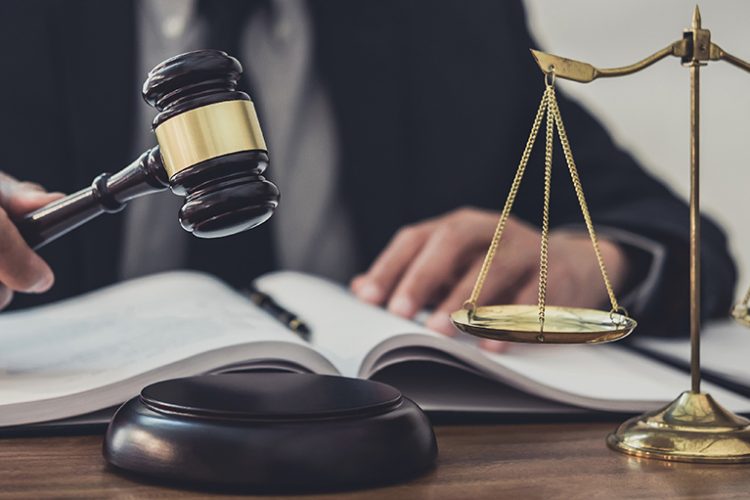Are you a whistleblower seeking to expose wrongdoing and protect yourself? The path you’re embarking on is a challenging one, but fear not – we’re here to guide you. In this article, we will provide you with valuable information on how to navigate the complex world of whistleblower laws and protections.
Firstly, it’s crucial to understand the legal landscape surrounding whistleblowing. By familiarizing yourself with the laws that safeguard your rights and offer protection against retaliation, you can make informed decisions throughout your journey.
Next, we’ll delve into assessing an attorney’s expertise in handling whistleblower cases. Not all lawyers are created equal when it comes to advocating for whistleblowers, so it’s essential to find someone who specializes in this area and understands the intricacies involved.
Furthermore, evaluating an attorney’s track record and success rate is vital. You want someone by your side who has a proven history of achieving favorable outcomes for their clients.
Lastly, we’ll discuss the importance of communication and trust between you and your attorney. Open lines of communication and a strong bond built on trust will be instrumental in navigating the challenges ahead.
So let us serve as your reliable compass as you embark on this journey towards justice – read on for invaluable guidance in choosing the right attorney for your whistleblower case.
Understanding Whistleblower Laws and Protections
So, you’re ready to learn about whistleblower laws and how they can protect you, right? Well, let’s dive in. Whistleblower laws are designed to safeguard individuals who report illegal activities or wrongdoing within their organizations. These laws provide protection against retaliation from employers, such as termination or harassment. They also offer incentives for whistleblowers by allowing them to receive a portion of any monetary penalties imposed on the wrongdoers. Whistleblower protections vary depending on the jurisdiction and the type of misconduct reported. For example, in the United States, there are specific laws like the False Claims Act and the Dodd-Frank Act that cater to different types of whistleblowing cases. Understanding these laws is crucial because it helps you navigate through your rights and protections as a whistleblower effectively.
Assessing an Attorney’s Expertise in Whistleblower Cases
When evaluating an attorney’s suitability for whistleblower cases, it’s crucial to gauge their expertise in this specialized area of law. Whistleblower cases require a deep understanding of the legal framework surrounding whistleblowing and the specific protections afforded to individuals who come forward with information about wrongdoing. Look for attorneys who have a proven track record of handling whistleblower cases successfully. They should be well-versed in the relevant laws and regulations, such as the False Claims Act or the Dodd-Frank Wall Street Reform and Consumer Protection Act. Additionally, assess whether they have experience representing clients in similar industries or against comparable defendants. A knowledgeable attorney will be able to navigate complex legal processes, gather evidence effectively, and build a strong case on your behalf. Don’t hesitate to inquire about their past successes and seek references from previous clients to ensure they possess the necessary expertise for your whistleblower case.
Evaluating an Attorney’s Track Record and Success Rate
Look for an attorney who has a proven track record of winning cases and achieving justice for their clients, giving you confidence in their ability to fight for your rights. Evaluating an attorney’s track record and success rate is crucial when choosing the right attorney for your whistleblower case. Look at their past cases and see if they have handled similar whistleblower cases before. Pay attention to the outcomes of these cases – did they succeed in obtaining favorable results? A high success rate indicates that the attorney is skilled and experienced in handling whistleblower cases effectively. Additionally, consider the size and complexity of the cases they have handled. If they have successfully represented clients in complex, high-profile whistleblower cases, it demonstrates their ability to handle challenging situations. Remember that evaluating an attorney’s track record can give you insight into what you can expect from them as your legal representative.
Considering Communication and Trust with Your Attorney
To ensure a successful partnership, it’s crucial to establish strong communication and trust with your attorney. Effective communication is key when working with an attorney on whistleblower cases. You should be able to freely express your concerns, ask questions, and receive timely responses from your attorney. They should provide clear explanations of legal concepts and keep you informed about the progress of your case. Trust is equally important as it forms the foundation of the attorney-client relationship. You need to have confidence that your attorney has your best interests at heart and will advocate for you diligently. This can be fostered through open and honest discussions, where you feel comfortable sharing sensitive information related to the case. A trustworthy attorney will respect confidentiality and maintain professionalism throughout the process, ensuring a smooth collaboration towards achieving your goals.
Seeking Legal Advice and Consultation
Seeking legal advice and consultation is essential for ensuring your peace of mind and empowering you to make informed decisions. When considering a whistleblower case, it’s crucial to consult with an attorney who specializes in this area of law. An experienced whistleblower attorney can provide valuable guidance on the merits of your case, potential risks, and the best course of action to take. During a consultation, they will review the evidence you have and assess its strength, helping you understand whether or not it supports a viable claim. They will also advise you on how to gather additional evidence if needed. Additionally, an attorney can explain the legal process involved in filing a whistleblower lawsuit and help you navigate through potential obstacles that may arise along the way. By seeking legal advice and consultation, you can ensure that your rights are protected and increase your chances of achieving a successful outcome in your case.
Conclusion
In conclusion, choosing the right attorney for your whistleblower case is crucial to ensuring a successful outcome. By understanding whistleblower laws and protections, assessing an attorney’s expertise in this specific area of law, evaluating their track record and success rate, considering communication and trust, and seeking legal advice and consultation, you can make an informed decision. Remember to thoroughly research potential attorneys and trust your instincts when selecting someone who will advocate for your rights as a whistleblower.

